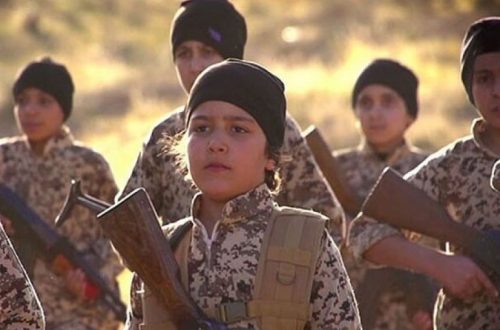This is a guest post by Houriya Ahmed
Earlier this week I wrote a piece, which was posted on this blog, on the dangers of denying terrorism in the UK. In that piece I referred to Kamel Bourgass, convicted for his role in the ricin terrorism plot.
In response, one Harry’s Place commentator stated that Bourgass “was acquitted of the terror charges against him, along with his six alleged co-conspirators but was found guilty of killing a police officer and thus convicted for murder.” This is not the first time I’ve heard this incorrect information.
Bourgass was sentenced to life imprisonment for murdering a police officer while resisting arrest during a counter terrorism operation. But he was also sentenced in 2005 to 17 years imprisonment, on top of his life sentence for murder, for conspiracy to cause public nuisance – i.e. the ricin plot. This is obviously not a minor crime. His alleged co-conspirators were acquited. Bourgass appealed his murder and terrorism conviction, but both were dismissed. The transcript of that judgement reveals evidence that Bourgass was planning something in relation to the terrorism plot:
“On 5th January 2003, a police search of an address at 352b High Road, Wood Green in north London began. […] Among the vast number of items revealed by the search was [an] envelope [which] contained £4100 in cash, together with a number of hand-written ‘recipes’ identifying appropriate ingredients and equipment to enable various types of poisons, including ricin and cyanide and explosives, to be manufactured, together with paper capable of being used as filter paper. There were plastic bottles containing a variety of different chemicals which could have formed the ingredients for the manufacture of ricin and cyanide, together with a number of further items including thermometers, rubber gloves, blotting paper, various electrical items, together with a pestle and mortar said – wrongly as it turned out, on the basis of a false positive – to contain traces of ricin, and diagrams for an improvised time delay explosive device involving a detonator. […] The appellant denied that he had written the “recipes”, but there was handwriting and fingerprint evidence which linked him to them, and to a number of the jars, as well as the envelope containing cash, and indeed a number of the objects found at Wood Green.”
Because no traces of ricin were ever found in the Wood Green flat, people take this as evidence that there was no terrorism plot. A journalist and surprisingly the jury foreman of the ricin trial went one step further and published a book earlier this year, suggesting that ricin is an unlikely choice for terrorists who want to commit mass murder as it has conventionally been used for targeted assassinations. They even point to Bourgass’ “amateurish” nature to prove how he couldn’t have possibly planned mass murder using ricin, and the plot was exaggerated by the government to make them look tough on terrorism in a post 9/11 climate.
But Bourgass is more than a bumbling fool. He was a member of an Algerian terrorist group, the Salafist Group for Preaching and Combat (now al-Qaeda in the Islamic Maghreb) and was sent to Afghanistan to train with al-Qaeda. At the training camp, Bourgass met Mohammed Meguerba, convicted in Algeria in 2005 on terrorism charges, and the two men learnt how to make poisons there. Those who attended the al-Qaeda camp were told to set up sleeper cells across Europe.
Both came to the UK, Bourgass entering in 2000 where he applied for asylum but was refused. The two visited Finsbury Park Mosque during Abu Hamza’s reign where they associated with other al-Qaeda operatives, such as Rabah Kadre, who was convicted in absentia in France in 2004. When arrested in Algeria, Meguerba claimed that both he and Bourgass were using a flat in North London to make ricin, which they intended to smear on door handles.
Misinformed comments only helps bolster arguments made by those who want us to believe that the terrorism threat is an over exaggeration, or by those who believe governments and not terrorists are the only problem.


